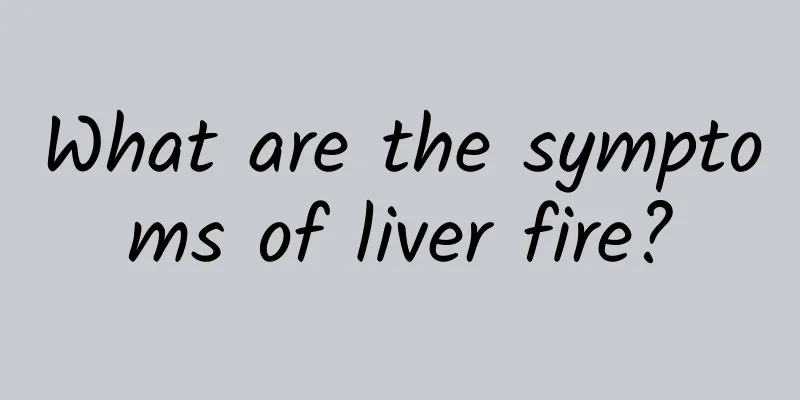What does thoracic surgery include?

|
What diseases require treatment by thoracic surgery? Incredible, of course, it specializes in the study of organs within the thoracic cavity, mainly referring to the diagnosis and treatment of esophageal, lung, and mediastinal diseases, and now the field of breast surgery has also been included in this specialty, with lung surgery and esophageal surgery being the main ones. Thoracic surgery is an ancient surgical field and should be familiar to everyone. If you want to know more about it, please read the introduction below. The diseases that most people see and go to the thoracic surgery department for treatment include: lung cancer, esophageal cancer, mediastinal tumors, bullae and pneumothorax, chest trauma, etc. In fact, thoracic surgery involves a lot of diseases, as follows: (1) Chest trauma: rib fractures, traumatic pneumothorax, traumatic hemothorax, tracheal and bronchial injuries, lung injuries, esophageal injuries (esophageal burns, foreign bodies, perforations), and traumatic diaphragmatic rupture. (Note: Combined cardiac trauma is usually diagnosed and treated by cardiac surgery). (2) Chest wall diseases: congenital chest wall deformities (pectus excavatum, pectus carinatum, rib absence, sternal cleft, etc.), chest wall infectious diseases (chest wall tuberculosis, deep chest wall soft tissue infection, suppurative rib osteomyelitis, costochondritis), and chest wall tumors. (3) Pleural diseases: empyema, non-traumatic hemothorax, spontaneous pneumothorax, pleural fistula, and malignant pleural effusion. (4) Tracheal diseases: congenital tracheal malformation, tracheal stenosis, tracheal tumors, and tracheal transplantation. (5) Lung diseases: congenital pulmonary dysplasia, pulmonary sequestration, pulmonary bullae, infectious lung diseases, benign and malignant lung tumors, lung transplantation, etc. (6) Esophageal diseases: congenital esophageal diseases, esophageal diverticulum, gastroesophageal reflux disease, spontaneous esophageal rupture, achalasia, benign and malignant esophageal tumors. (7) Mediastinal diseases: mediastinal emphysema, mediastinal tumors, and thymic tumors. (8) Diaphragmatic diseases: diaphragmatic hernia, diaphragmatic tumor. (9) Diseases related to the thoracic sympathetic chain: primary hyperhidrosis, long QT syndrome, facial flushing, Raynaud's syndrome, and intractable upper abdominal pain (caused by the sympathetic nerves). What are the common procedures in emergency chest trauma surgery? These procedures are often performed in the emergency room and are preceded by a brief preoperative interview with the patient's family. Cricothyroidotomy, bedside tracheostomy, thoracentesis, thoracostomy closed drainage, immediate thoracotomy. If surgery is not performed in time, inflammation and compression of the respiratory tract and lungs may occur, leading to death from lack of oxygen and suffocation within a period of time. What tests should thoracic surgery patients undergo before surgery? Before surgery, if the situation is not very urgent, B-ultrasound, X-ray, CT, MRI and other examinations can be performed to understand the relationship between the lesions and the location of the esophagus and pleural cavity. Gastroscopy and thoracoscopy are required. In addition, general blood tests and cardiopulmonary function tests are also required. Why do patients undergoing thoracic surgery need to undergo respiratory function assessment? Is it easy to develop pneumonia and breathing difficulties after surgery? Thoracic surgery patients, especially those with lung diseases. Due to acute or long-term chronic diseases, respiratory function often declines to varying degrees. Anesthesia and surgery will further damage respiratory function and increase the occurrence of complications. Assessment of respiratory function before surgery is crucial for choosing anesthesia methods, expected postoperative outcomes, and surgical complications. What should patients who are preparing for thoracic surgery pay attention to? (1) Do not smoke or drink alcohol after admission. Patients who quit smoking for more than 2 weeks before surgery will have a significantly reduced risk of postoperative complications. (2) The diet should be high in calories, protein, vitamins and fat. |
<<: What diseases does thoracic surgery treat?
>>: TCM treatment of somatization disorder
Recommend
28 weeks of pregnancy uterine height abdominal circumference standard
We all know that pregnancy is very hard for women...
White vinegar foot bath has many benefits for treating athlete's foot and onychomycosis
Many people know that foot soaking is very good f...
Can applying vitamin E on the face remove freckles?
Vitamin E can be taken orally, and it can help pr...
What to do if your skin is rough and dark yellow
Skin problems have always troubled many people, e...
What should I check after 3 months of hysterectomy?
Hysterectomy is a gynecological surgery. Under no...
What causes pulmonary cystadenoma?
The lungs are very important organs in the human ...
Chinese medicine treatment of urticaria
Traditional Chinese Medicine Treats Urticaria? Ma...
What are the effects of Rehmannia glutinosa and Polygonum multiflorum
Rehmannia glutinosa and Polygonum multiflorum are...
What is the reason for the visible blood flow signals around the gestational sac?
During pregnancy, a pregnant woman will experienc...
What's wrong with the little boy who always wants to pee?
Under normal circumstances, if a child does not d...
How to treat cor pulmonale? Staged treatment is more effective
Cor pulmonale, also known as chronic pulmonary he...
How are colds transmitted?
Cold is the most common symptom in life. Cold has...
Toxicity of Heishun Tablets
The outer skin of Heishunpian is dark brown, whil...
Can I eat watermelon after miscarriage? What should I pay attention to?
In summer, many people like to use watermelon to ...
Is the electric breast enhancement device effective?
Breast enlargement is an issue that women are par...









